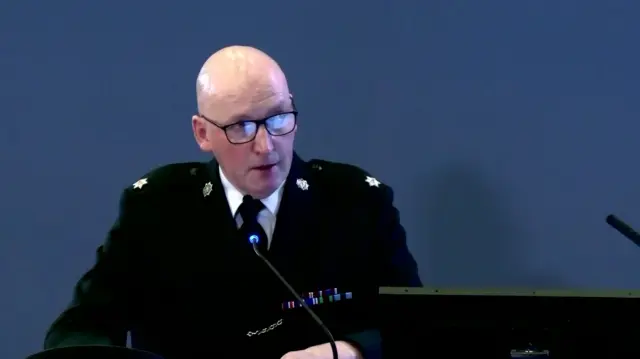Took woman to hospitalpublished at 14:42 GMT 18 February
He says he came across a young woman with a serious head injury being tended to.
He says he ran back to his police car and drove through the crowd to where the girl was lying.
He says he put her in the car and took her to hospital.
He says the girl later died of her injuries.
